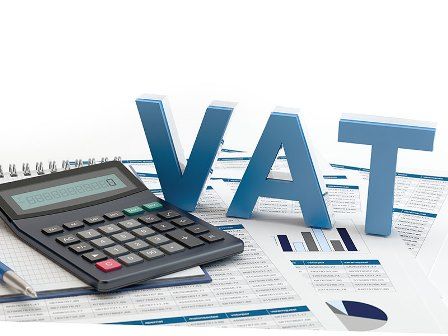
Big VAT changes on the cards
By: Shaun Jacobs – Daily Investor
Major changes are coming to VAT in South Africa, with the government looking to expand the range of food items exempt from the tax.
President Cyril Ramaphosa announced on Thursday (18/07/2024) during the Opening of Parliament Address that the Government of National Unity (GNU) will review ways to help reduce prices of goods for South Africans.
This includes a comprehensive review of administered prices, including the fuel price formula, to identify areas where prices can be reduced.
As South Africans grapple with high poverty levels and the cost of living, it will also look to expand the range of essential food items exempt from VAT.
Trade Intelligence’s Grocery Shopper Report for 2024/25 revealed how severely South Africans have been affected by the rising cost of living and, in particular, food inflation.
The report showed that 17% of household expenditure in South Africa is on food, second only to housing and utilities, which account for 25% of spending.
Over the past few years, food inflation has remained sticky, keeping headline inflation elevated and even resulting in the Competition Commission investigating retailers for potential price gouging.
In 2023, food inflation averaged 10.8%, following an average of 9.2% in 2022 – driving up headline inflation.
“Even at a time when many companies are making large profits, millions of South Africans are suffering as a result of rising prices,” Ramaphosa said.
The below items are the current basic foodstuffs zero-rated by the National Treasury in South Africa –
- Brown bread
- Maize meal
- Samp
- Mealie rice
- Dried mealies
- Dried beans
- Lentils
- Milk powder
- Pilchards/sardinella in tins
- Dairy powder blend
- Rice
- Fruit
- Vegetables
- Vegetable oil
- Milk
- Cultured milk
- Brown wheaten meal
- Eggs
- Edible legumes and pulses of leguminous plants
It is unclear what will be added to this list, with the President giving no details aside from saying the government will look to expand VAT-exempt food items.
Opposition from Treasury
Expanding the list of VAT-exempt food items is nothing new. Members of the previous government touted the idea.
The National Treasury has opposed it, with Finance Minister Enoch Godongwana saying that it would provide little help to those who need it.
In October last year, Godongwana said studies show that expanding the list would benefit affluent families more. This is despite poorer households consuming more zero-rated food items.
“My position has not changed since the last oral reply. As indicated then, zero-rating of specific foodstuffs provides a larger proportional benefit to the poor,” Godongwana said.
“Overall, goods have a progressive impact and a strong equity-gain ratio – poor people consume a relatively high share of zero-rated items.
“However, the analysis of the independent panel in 2018 indicated that extending zero-rating to further food items would be inefficient since high-income households tend to benefit more from such measures.”
Deputy Minister David Masondo agreed with Godgonwana, saying that any expansion would result in revenue loss for the government.
“Zero-rated products are well targeted. Further zero rating will lead to VAT revenue loss, which could be directed to the already existing pro-poor government programmes,” Masondo said.
“Targeted cash transfer to the poor is better and more redistributive as opposed to VAT, which benefits mostly high-income households.”
However, Masondo said that zero-rating some food items is necessary to alleviate pressure on households, but it is not the best instrument for improving their financial well-being.
“Recognising that zero rating is not the best instrument, the government has instead implemented a number of policies to directly benefit lower-income households through the expenditure side.”
“Education and health budgets are progressive and extensive grant system of old age grants, the child support grant and the disability grant provide cash to households who are most in need.”
News Category
- International retailers
- On the move
- Awards and achievements
- Legislation
- Wine and liquor
- Africa
- Going green
- Supplier news
- Research tools
- Retailer trading results
- Supply chain
- Innovation and technology
- Economic factors
- Crime and security
- Store Openings
- Marketing and Promotions
- Social Responsibility
- Brand Press Office
Related Articles

Empowering South African households through gro...

SPAR shares practical tips to beat food inflation

South African motorists could be paying up to R...

Good signs for petrol prices in South Africa


